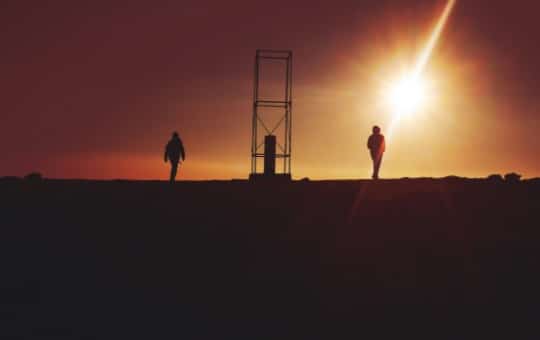
Lord, High and Holy, Meek and Lowly,
Thou hast brought me to the valley of vision,
Where I live in the depths but see thee in the heights;
Hemmed I’m by mountains of sin I behold thy glory.
Let me learn by paradox
that the way down is the way up,
That to be low is to be high,
That the broken heart is the healed heart,
That the contrite spirit is the rejoicing spirit,
That the repenting soul is the victorious soul,
That to have nothing is to possess all,
That to bear is to receive,
That the valley is the place of vision.
Lord, I’m the daytime stars
that can be seen from deepest wells,
And the deeper the wells the brighter thy star shine;
Let me find thy light in my darkness,
Thy life in my death,
Thy joy in my sorrow,
Thy grace in my sin,
Thy riches in my poverty thy glory in my valley.
—Valley of Vision

So much of God’s economy revolves around paradoxes: the last will be first, the greatest will have been the servant, and so on. And there is the apostle James’ paradox of joy: “Count it all joy, my brothers, when you meet trials of various kinds.” That’s so counterintuitive that you’re tempted to ask, is he kidding? But before you can, he continues, “for you know that the testing of your faith produces steadfastness. And let steadfastness have its full effect, that you may be perfect and complete, lacking in nothing” (James 1:2-4). When trials come, difficult circumstances arise, or inexplicable events occur, it tests our faith. We say things like, “I don’t know what God is doing.” And that’s so very true—we don’t know what He’s doing. But we can be assured that if trials test your faith, they’re doing so with purpose. May this Puritan prayer reflecting on the paradoxes of God’s redemptive love stir our hearts to deeper faith and reliance upon His love and grace in each and every setting. —DH
—David Hoskins, Founder & Care Guide, Sanctuary Clinics
